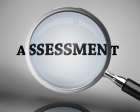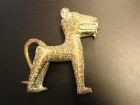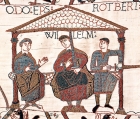Progression & Assessment
What does it mean to get better at history, and how should we explain this to parents? How do we use assessment to help our children get better at history? This section offers advice on progression in history. History education is not necessarily a linear process. Perhaps developing a greater independence in studying, in asking perspective questions, in reading their own conclusions based on the evidence are a sign of getting better. We have the freedom to develop our own assessment regime, and this section offers some ideas to help do this.
Sort by:
Date (Newest first) | Title A-Z
Show:
All |
Articles |
Podcasts |
Multipage Articles
-

Assessment and Progression without levels
ArticleClick to view -

Assessment and feedback in history
ArticleClick to view -

Assessment in Primary History - Guidance
Multipage ArticleClick to view -

Britain from the Iron Age to Robin Hood
ArticleClick to view -

Effective implementation in primary history
ArticleClick to view -

Eweka's story: Benin and Big Picture History
ArticleClick to view -

From Home to the Front: World War I
ArticleClick to view -

Helping students make sense of historical time
ArticleClick to view -

How could an ITaP help you teach more history?
ArticleClick to view -

It worked for me: investing in dialogue as a tool for assessment
ArticleClick to view -

Learning to engage with documents through role play
ArticleClick to view -

Monitoring, assessment, recording and reporting
ArticleClick to view -

Progression & Assessment without Levels - Guide
Multipage ArticleClick to view -

Progression and coherence in history
ArticleClick to view -

Progression from EYFS to Key Stage 3
ArticleClick to view -

Progression in history and adapting work to the needs of different children
ArticleClick to view -

Subject leader’s site: assessment and feedback
ArticleClick to view -

The importance of history vocabulary
ArticleClick to view -

Tracking pupil progress
ArticleClick to view -

Transition Key Stage 2 and 3
ArticleClick to view

